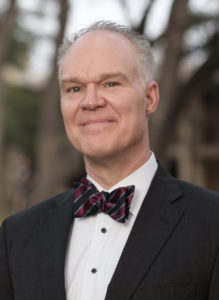Graduate school will mess with almost every aspect of your life.
In addition to its academic demands, it will most likely strain your finances, tax your relationships and intrude on your favorite rituals of self-care. If (as the proverb says) “comfort is what a habit feels like,” graduate school seems engineered to make you uncomfortable.
Of course, if you’re called to the healing professions, a graduate program that prepares you for that work is worth the hassle — and discomfort is itself a sign you’re stretching yourself into the new experiences that will help you learn and grow. But here’s a more radical possibility: What if the life changes that come with graduate school are actually part of your preparation to serve others?
As a counselor, you’ll be helping others navigate challenges and changes in their lives. You’ll hear about money pressures, marriage problems, the sense that there’s too much to do and that life’s demands are overwhelming. Your own experience with some version of these stories informs your intuition and becomes a resource for healing.
Of course, you’ve dealt with these stresses before. Perhaps these experiences helped you discern your call to help others. But graduate school stresses are special in two ways. First, it’s a big change that puts pressure on several dimensions of your life at once. If you’re cutting back on work to make room for studies, you’ll have to manage money more carefully. You’ll have to negotiate with your partner, family and friends time away for study and class. You’ll have to work a bit harder to grab time for sleep and exercise, or just get used to getting less for a while. It’s almost as if graduate school has this lab component that immerses you in a controlled version of what may be overwhelming your clients.
Second, you’ll be managing these challenges in community. Your professors and classmates understand what you’re going through. Everyone in the program is, for the most part, in the same boat. You can support each other, share strategies for managing and encourage each other. You can mine this experience together for insight into how to be present with others who feel stressed and overwhelmed. Considering the stressors part of your program, as if they were an extra class you were all taking together, helps create a little distance that gives perspective.
Your professors understand the personal sacrifice involved in preparing for ministry. They’ve done it themselves. They’ve walked with other students on this journey. They’re committed to helping you transform the stress into wisdom.
Many of us remember graduate school as one of the most fruitful times in our lives, a season of rapid learning and growth and the rich relationships that form around this work. Yes, it was stressful. In retrospect, how we learned to meet the challenges, adapt to changes and form new habits was often as valuable as what we learned in class.


